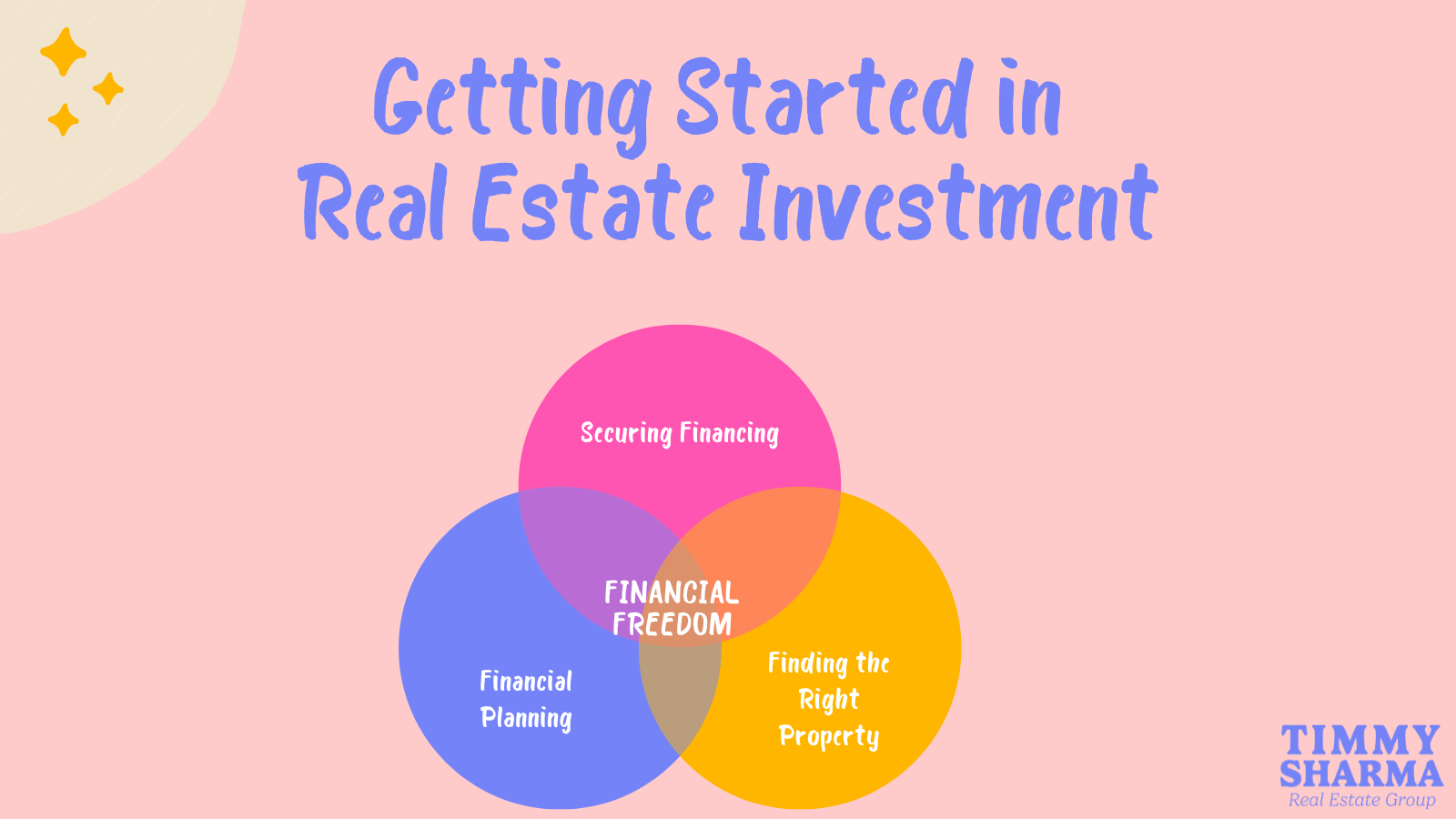
Introduction to Real Estate Investment: Your Path to Financial Freedom
Real estate investment is a proven strategy to build long-term wealth and secure your financial future. By investing in properties, you can generate passive income, appreciate your assets over time, and benefit from various tax advantages.
Whether you’re a seasoned investor or a beginner, understanding the fundamentals of real estate investment is crucial. In this comprehensive guide, we will delve into the intricacies of real estate investment, covering topics such as:
- Types of Real Estate Investments: Explore the diverse range of real estate investment opportunities, from residential and commercial properties to REITs and land.
- Getting Started: Learn how to navigate the initial steps, including financial planning, property analysis, and securing financing.
- Strategies for Success: Discover effective strategies to maximize your returns, such as property management, leveraging leverage, and tax optimization.
- Risks and Rewards: Understand the potential risks and rewards associated with real estate investment and how to mitigate risks.
- FAQs: Find answers to common questions about real estate investment.
This guide is designed to provide you with the knowledge and tools you need to make informed decisions and achieve your financial goals through real estate investment. So, let’s embark on this journey together and unlock the potential of real estate.

Understanding Real Estate Investment
What is Real Estate Investment?
Real estate investment involves purchasing properties with the intention of generating income and long-term capital appreciation. Unlike stocks or bonds, real estate offers a tangible asset that you can physically own and control.
Why Invest in Real Estate?
- Passive Income: By renting out your properties, you can generate a steady stream of passive income that can supplement your primary income or provide financial security in retirement.
- Appreciation: Real estate values tend to appreciate over time, especially in growing markets like Calgary. As property values increase, so does your net worth.
- Tax Advantages: Real estate offers several tax benefits, including depreciation deductions, interest expense deductions, and capital gains tax deferrals.
- Leverage: By using a mortgage to finance your purchases, you can leverage your investment and amplify your returns.
- Tangible Asset: Unlike stocks and bonds, real estate is a tangible asset that you can physically own and control.

The Role of Real Estate Agents and Brokers
A skilled real estate agent or broker can be invaluable in your real estate investment journey. They can provide expert advice on market trends, property valuation, negotiation, and legal matters. When selecting a real estate professional, look for someone with a strong track record of success, a deep understanding of the local market, and a commitment to your investment goals.
Additional Considerations
- Market Research: Conduct thorough market research to identify promising investment opportunities. Analyze factors such as population growth, job market, rental demand, and property values.
- Diversification: Diversify your real estate investment portfolio by investing in different property types, geographic locations, and risk profiles.
- Risk Management: Understand the risks associated with real estate investment, such as market fluctuations, vacancy rates, and property management challenges. Develop strategies to mitigate these risks.
- Long-Term Perspective: Real estate investing is a long-term strategy. Avoid short-term thinking and focus on building a sustainable portfolio.
By carefully considering these factors, you can increase your chances of success in real estate investment. We are here at every step of the way to assist you with your journey in real estate investment. Contact us to start.
Types of Real Estate Investments
Real estate offers a diverse range of investment opportunities, each with its own set of risks and rewards. Here are some of the most common types of real estate investments:
Residential Real Estate
- Single-Family Homes: Investing in single-family homes can provide stable rental income and potential appreciation. Consider strategies like buy-and-hold, fix-and-flip, or house hacking.
- Multi-Family Properties: Multi-family properties, such as duplexes, triplexes, and apartment buildings, offer the potential for higher rental income and economies of scale.
Commercial Real Estate
- Office Buildings: Investing in office buildings can provide steady rental income from businesses. However, it’s important to consider factors like tenant turnover, lease terms, and market demand.
- Retail Properties: Retail properties, such as shopping centres and strip malls, can generate income from retail tenants. However, the success of retail investments is often tied to the overall health of the retail industry.
- Industrial Properties: Industrial properties, including warehouses and distribution centres, can be attractive investments due to the growing demand for e-commerce and logistics.
Land Investment
- Land for Development: Investing in undeveloped land can be a high-risk, high-reward strategy. The potential for significant returns depends on factors like zoning regulations, infrastructure development, and market demand.
- Agricultural Land: Investing in agricultural land can provide stable rental income, tax benefits, and potential appreciation. However, it’s important to understand the complexities of agricultural operations and market fluctuations.
Real Estate Investment Trusts (REITs)
REITs are publicly traded companies that own and operate income-generating real estate. By investing in REITs, you can gain exposure to a diversified portfolio of real estate assets without the hassle of direct property ownership.
When choosing a type of real estate investment, consider your risk tolerance, financial goals, and time commitment. It’s also important to conduct thorough research and due diligence to identify promising investment opportunities.

Getting Started in Real Estate Investment
Financial Planning
Before diving into real estate investment, it’s crucial to have a solid financial plan in place. Here are some key steps to consider:
- Set Clear Goals: Determine your investment objectives, whether it’s generating passive income, building wealth, or diversifying your portfolio.
- Create a Budget: Assess your income and expenses to understand your available funds for investing.
- Save for a Down Payment: Start saving for a down payment on your first property. The required down payment can vary depending on the type of property and lender.
- Build Your Credit Score: A good credit score can help you secure better loan terms and interest rates.
Finding the Right Property
Once you have a solid financial foundation, the next step is to find the right property. Here are some tips:
- Market Research: Analyze local market trends, rental demand, and property values.
- Property Analysis: Evaluate properties using metrics like capitalization rate (cap rate), cash-on-cash return, and rental yield.
- Due Diligence: Conduct thorough inspections, review property records, and assess potential risks.
- Work with a Real Estate Agent: A knowledgeable real estate agent can help you find suitable properties, negotiate deals, and navigate the buying process.
Securing Financing
Securing financing is a crucial step in the real estate investment process. Here are some options:
- Traditional Mortgage: A traditional mortgage is a common financing option for purchasing real estate.
- Hard Money Loan: Hard money loans are short-term loans that can be used to purchase distressed properties or fund renovations.
- Private Lender: Private lenders can offer flexible financing options, especially for investors with unconventional deals or credit histories.
When applying for a loan, be prepared to provide financial documentation, such as tax returns, bank statements, and proof of income.
By following these steps and working with experienced professionals, you can increase your chances of success in real estate investment. We are here at every step of the way to assist you with your journey in real estate investment. Contact us to start.
Strategies for Successful Real Estate Investment
To maximize your returns and minimize risks, consider implementing the following strategies:
Property Management
- Self-Management: If you have the time and expertise, self-managing your properties can save on management fees. However, it requires significant effort and attention to detail.
- Hiring a Property Management Company: Outsourcing property management to a professional company can free up your time and provide peace of mind.
Leveraging Leverage
Leverage involves using borrowed funds to amplify your investment returns. However, it’s important to use leverage wisely and manage debt responsibly.
Tax Strategies
Real estate offers several tax benefits, including:
- Depreciation: You can deduct a portion of the cost of your rental property over time.
- Interest Deductions: Mortgage interest payments can be tax-deductible.
- Capital Gains Tax Deferral: As an example, strategies like 1031 exchanges can help you defer capital gains taxes. Please research for any other strategies that might be relevant in your case.
To optimize your tax strategy, consult with a tax professional.
Building a Strong Team
Surround yourself with a team of experts who can help you achieve your investment goals. This may include:
- Real Estate Agent: A knowledgeable agent can help you find and negotiate deals.
- Attorney: An attorney can provide legal advice and help with contracts and closings.
- Accountant: An accountant can help you manage your finances and optimize your tax strategy.
- Contractor: A reliable contractor can handle renovations and repairs.
By implementing these strategies and working with a strong team, you can increase your chances of success in real estate investment.

Risks and Rewards of Real Estate Investment
Like any investment, real estate investment comes with both risks and rewards.
Potential Risks
- Market Fluctuations: Economic downturns and changes in market conditions can impact property values and rental income.
- Vacancy Rates: Vacancies can reduce rental income and increase operating costs.
- Property Management Challenges: Managing rental properties can be time-consuming and stressful.
- Natural Disasters: Natural disasters can damage properties and disrupt rental income.
- Interest Rate Risk: Rising interest rates can increase borrowing costs and reduce property values.
Potential Rewards
- Passive Income: Rental income can provide a steady stream of passive income.
- Appreciation: Real estate values tend to appreciate over time, especially in growing markets.
- Tax Advantages: Real estate offers various tax benefits, including depreciation and interest deductions.
- Leverage: Using leverage can amplify your returns.
- Tangible Asset: Real estate is a tangible asset that can be physically owned and controlled.
To mitigate risks and maximize rewards, it’s essential to conduct thorough due diligence, diversify your investments, and develop a solid investment strategy.
By understanding the risks and rewards of real estate investment, you can make informed decisions and achieve your financial goals.
FAQ Section
Common Questions About Real Estate Investment
Q1: How much money do I need to start investing in real estate?
A1: The amount of money needed to start investing in real estate varies depending on the investment strategy. For traditional property investment, you’ll need a down payment, typically around 20% of the property’s purchase price. However, there are alternative options like REITs or crowdfunding platforms that allow you to invest with smaller amounts.
Q2: What are the best real estate markets for investment?
A2: The best real estate markets for investment depend on various factors, including job growth, population growth, economic stability, and rental demand. It’s essential to conduct thorough market research to identify markets with strong fundamentals and potential for appreciation.
Q3: How can I find a good real estate agent or broker?
A3: When choosing a real estate agent or broker, look for someone with experience, knowledge of the local market, and a proven track record of success. You can ask for referrals from friends, family, or other investors. It’s also important to interview multiple agents to find the best fit for your needs.
Q4: What are the tax implications of real estate investment?
A4: Real estate investment offers several tax advantages, including depreciation, interest deductions, and capital gains tax deferral. However, it’s crucial to consult with a tax professional to understand the specific tax implications of your investments and to optimize your tax strategy.
Q5: How can I manage rental properties effectively?
A5: Effective property management is crucial for maximizing returns and minimizing headaches. You can choose to self-manage your properties or hire a professional property management company. If you decide to self-manage, you’ll need to handle tasks such as tenant screening, rent collection, maintenance, and legal compliance.
Q6: What are the risks of real estate investment?
A6: Real estate investment, like any investment, involves risks. Some of the key risks include market fluctuations, vacancy rates, property management challenges, natural disasters, and economic downturns. It’s important to conduct thorough due diligence, diversify your investments, and have a solid financial plan to mitigate these risks.
Q7: How can I get started with real estate investing in Calgary?
A7: Calgary offers a strong real estate market with diverse investment opportunities. To get started, consider the following:
- Network with Local Investors: Connect with other investors to gain insights and potential partnerships.
- Attend Real Estate Investment Workshops and Seminars: Learn from experienced investors and industry experts.
- Partner with a Real Estate Agent: A local agent can provide valuable guidance and help you find suitable properties.
- Start Small: Begin with a smaller investment, such as a condo or townhouse, to gain experience and build your portfolio.
By taking these steps and staying informed about market trends, you can successfully navigate the Calgary real estate market and achieve your investment goals.
We are here at every step of the way to assist you with your journey in real estate investment. Contact us to start.

